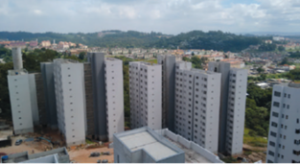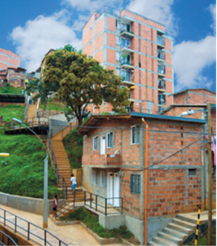Governance

ㅤ
Supported self-management – Estonian cooperative apartment associations
In Estonia, as a result of mass privatizations of public housing stock in the early 1990s, 97 per cent of people own their own home. Most live in multi-dwelling apartment buildings, which are managed by cooperative style apartment associations. Members of apartment associations are responsible for managing their buildings under legally defined frameworks which support their decision making. For example, more than 50 per cent of apartment owners in each building must agree on the scope and budget of any refurbishment work.
This approach has been very successful; figures from Eurostat show that the percentage of low-income households in Estonia living in substandard dwellings has been declining steadily: from close to 40 per cent in 2004, to around half that in recent years. The Estonian Union of Cooperative Housing Associations and its members have had a significant role to play in this, upgrading and improving low-quality housing, driven by collective decision-making and enabling the management of buildings by residents.
Florestan Fernandes and José María Amaral Social Housing Project in Sao Pablo (Brazil)

- Figure a: Florestan Fernandes and José Maria Amaral housing project. Photo: fablablivresp. Source: https://publications.iadb.org/publications/spanish/document/Vivienda_Qu%C3%A9_viene_de_pensar_la_unidad_a_construir_la_ciudad.pdf
Florestan Fernandes and José María Amaral Social Housing Project is an example of self-management with strong female leadership. Part of a social housing program called My House, My Life – Entities (MCMV-E), was launched by the Brazilian Government in 2009. This modality of the program allows community organizations to manage the entire process of social housing development, from its design to construction. In the case of the Florestan Fernandes and José María Amaral project, a community organization called Movimento dos Trabalhadores sem Terra Leste 1 was in charge of managing the resources and supervising the construction work. This included the purchase and regularization of the land and the possibility of involving the future residents in the design of the apartments together with the technical assistance team. In addition to actively participating in the design and construction of the project and according to the rules of the program, the female heads of households can sign the loan contract regardless of the acceptance of their spouse, and the property titles will be registered in the name of the women in the case of nuclear families. Furthermore, women’s property rights are guaranteed even in the event of divorce.
Comprehensive Neighborhood Improvement and Environmental Recovery Plan of the Juan Bobo Ravine, Medellín Urban Development Company (Colombia)

- Figure b: Public spaces adapted to the topography. Photo: courtesy of Empresa de Desarrollo Urbano de Medellín. Source: https://publications.iadb.org/publications/spanish/document/Vivienda_Qu%C3%A9_viene_de_pensar_la_unidad_a_construir_la_ciudad.pdf
The Plan took care of the natural risk implied by the proliferation of informal housing in the city of Medellin. It did so through the relocation of more than 1,260 inhabitants from high-risk housing sites and the recovery of environmental reserve areas and retreats to streams. The success of the project lies in having acted in an integral way encouraging participation, which guaranteed solutions related to local needs.
More information:
- UNECE Housing 2030 Report. Source: https://unece.org/sites/default/files/2021-10/Housing2030%20study_E_web.pdf
- BID’s Report Vivienda ¿Qué viene?: de pensar la unidad a construir la ciudad. Source: https://publications.iadb.org/publications/spanish/document/Vivienda_Qu%C3%A9_viene_de_pensar_la_unidad_a_construir_la_ciudad.pdf